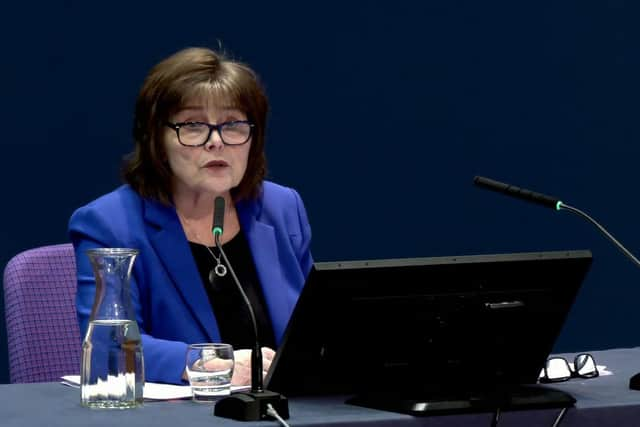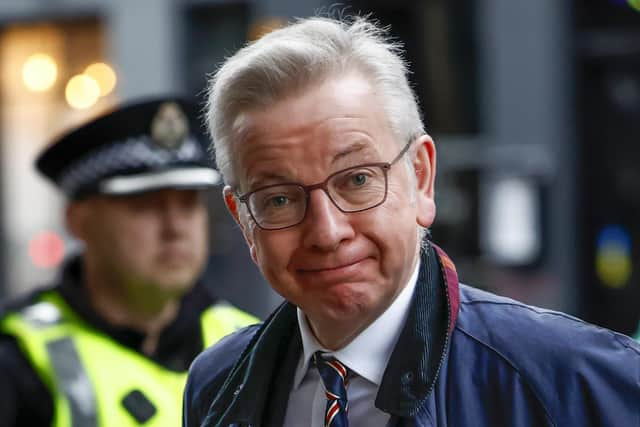UK Covid Inquiry: Five things we learned from Michael Gove and Jeane Freeman evidence
On Monday, it was the turn of Michael Gove, who served as a Cabinet Office minister during the pandemic, with a focus on intergovernmental relations, and Jeane Freeman, the former Scottish health secretary, to appear at the UK Covid Inquiry. Here are the key points from their evidence.
There were times the Scottish Government was “thinking politically”
Mr Gove told the inquiry it would be “naive” not to be aware that “highly-skilled politicians” might “well see political advantage” in certain points.
Advertisement
Hide AdAdvertisement
Hide Ad

The inquiry’s lead counsel, Jamie Dawson KC, asked Mr Gove if there was a “completely dysfunctional” relationship between the UK and Scottish governments “at times”.
Mr Gove disagreed, saying he didn’t believe the Scottish Government was politically motivated “in everything they do”.
“However, there are and were occasions when the Scottish Government was thinking politically, as we can see, and of course it is the case the SNP has a political mission to achieve Scotland’s independence, i.e. destroy the United Kingdom,” he said. “And it would be naive not to be aware that highly-skilled politicians, including those at the top of the Scottish Government, might well see what they perceive to be political advantage at certain points.”
Independence factored in some decision-making


According to Mr Gove, there were occasions when the Scottish Government “looked at things through a particular prism with respect to whether or not the case could be made, in due course, for independence, and that therefore there were certain occasions where divergence was being considered through a political lens”.
He pointed to WhatsApp messages between Liz Lloyd, who was Nicola Sturgeon’s chief of staff, and the then-first minister, where the former said she wanted “a good old fashioned rammy so can think about something other than sick people”.
Kate Forbes was well respected in Westminster, despite differences
Mr Gove told the inquiry: “I think the person who was undoubtedly one of the most constructive [figures in the Scottish Government] was Kate Forbes. It was the case that in all conversations with Kate Forbes, she would eschew any political, not point-scoring, but point-making, and concentrate on the business at hand."
Jeane Freeman cannot recover WhatsApps from Sturgeon
The former Scottish health secretary said she did not use a Scottish Government mobile phone because she did not “want to have two phones running”.
Ms Freeman told the inquiry that she was unable to recover messages she had exchanged with Ms Sturgeon, but said they were “short” and “operational” in nature.
Advertisement
Hide AdAdvertisement
Hide AdScottish Government could not prevent Scots from travelling to Italy
Ms Freeman said the Scottish Government could only have issued advice telling people not to go to northern Italy in late February 2020 as the pandemic began.
“We could have issued advice to people not to go, we could not have actually stopped people from going,” she said. “People returning, we would have required that information from the UK Government, so that we could have tested them on their return.
“It was not entirely at the hand of the Scottish Government.”
Comments
Want to join the conversation? Please or to comment on this article.